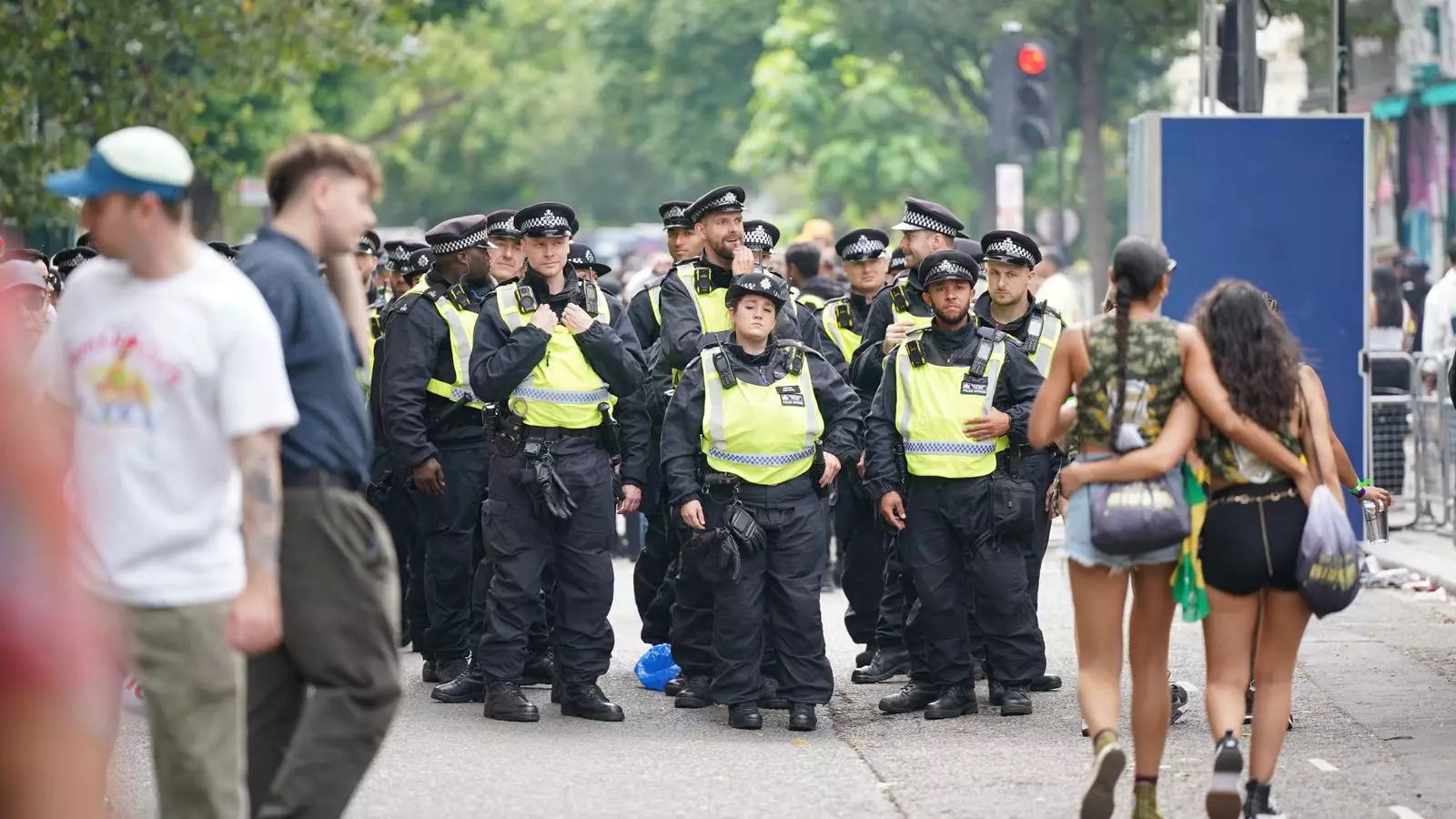The Notting Hill Carnival, a vibrant celebration of Caribbean culture that has been a staple of London’s multicultural landscape since the 1960s, has recently found itself plagued by violence, prompting the Metropolitan Police to take a stern stance against the escalating conflict. The event, which typically draws nearly one million attendees, is intended to be a joyful gathering celebrating heritage, music, and community spirit. However, the incidents that marred this year’s festivities—including stabbings and increased arrests—point to a concerning trend that threatens to overshadow the positive aspects of this cherished event.
On what was meant to be a family-oriented day at the carnival, three people were stabbed, including a 32-year-old woman who now remains in critical condition. The revelation that such violence can occur during an event meant for family and celebration is distressing and signals a deeper issue within society. Moreover, one cannot overlook the psychological toll such acts of aggression have on the community. Families, who come to enjoy themselves, are now forced to grapple with the fear and anxiety that accompany public celebrations gone wrong.
The statistics surrounding violence at the carnival are alarming. A total of 103 arrests were made on Sunday alone, with charges ranging from robbery to drug offenses. This is a sharp increase compared to previous years; four stabbings were reported this year, whereas last year saw ten. This growing pattern of violence raises serious questions about security measures in place during an event with such historical significance and massive attendance. Although the organizers and authorities strive for a harmonious atmosphere, the recurrent incidents indicate a need for more effective strategies to deter violence.
Deputy Assistant Commissioner Ade Adelekan, overseeing police operations during the event, expressed the frustration felt by law enforcement: “We are tired of saying the same words every year.” The sentiment speaks to a broader community fatigue—a sense that each year is marred by violence despite efforts to create a safe environment. This cycle not only threatens the longevity of the carnival but also undermines the dedication of those who work tirelessly to ensure its success.
In the face of rising violence, the plea from police for community engagement is clear. “It is the responsibility of all who value this event to speak out and speak up about the violence that continues to overshadow it,” Adelekan stated. This call to action reinforces the notion that community members play a pivotal role in safeguarding their collective experiences. It is not only the responsibility of law enforcement to ensure safety but also the duty of attendees to contribute to an environment where celebration can thrive without fear of violence.
Community intervention is crucial. Those who attend the carnival must become active participants in its preservation by reporting any suspicious behavior or plans that could lead to violence. The police have emphasized that sharing information could potentially save lives, a sentiment that highlights the gravity of the situation. The carnival serves as a reminder of the unity, creativity, and resilience inherent in cultural celebrations, yet ensuring its safety requires a unified community effort.
As the Metropolitan Police implement additional measures such as Section 60 orders—which grant officers enhanced searching powers—there lies hope that the essence of the Notting Hill Carnival can be reclaimed. By prioritizing safety without stifling the spirit of the event, authorities can potentially restore the unity and joy that defines this beloved festival. The addition of officers dedicated to ensuring a secure atmosphere can make a significant difference, but the ultimate goal must be to address the root causes of violence.
With the hope of brighter days, the community, law enforcement, and organizers must work hand in hand to create frameworks that protect the celebratory nature of the carnival. The resilience of the Notting Hill Carnival hinges on its ability to adapt in the face of adversity, maintaining the heart of the celebration while effectively confronting the challenges of violence—a delicate balance that, if achieved, could lead to a profound restoration of this iconic celebration. The allure of Notting Hill Carnival lies not in its occasional struggles but in its enduring legacy as a symbol of unity, creativity, and cultural pride. Through collective action, the community can strive not merely to prevent violence but to redefine the narrative surrounding this historic event.


Leave a Reply